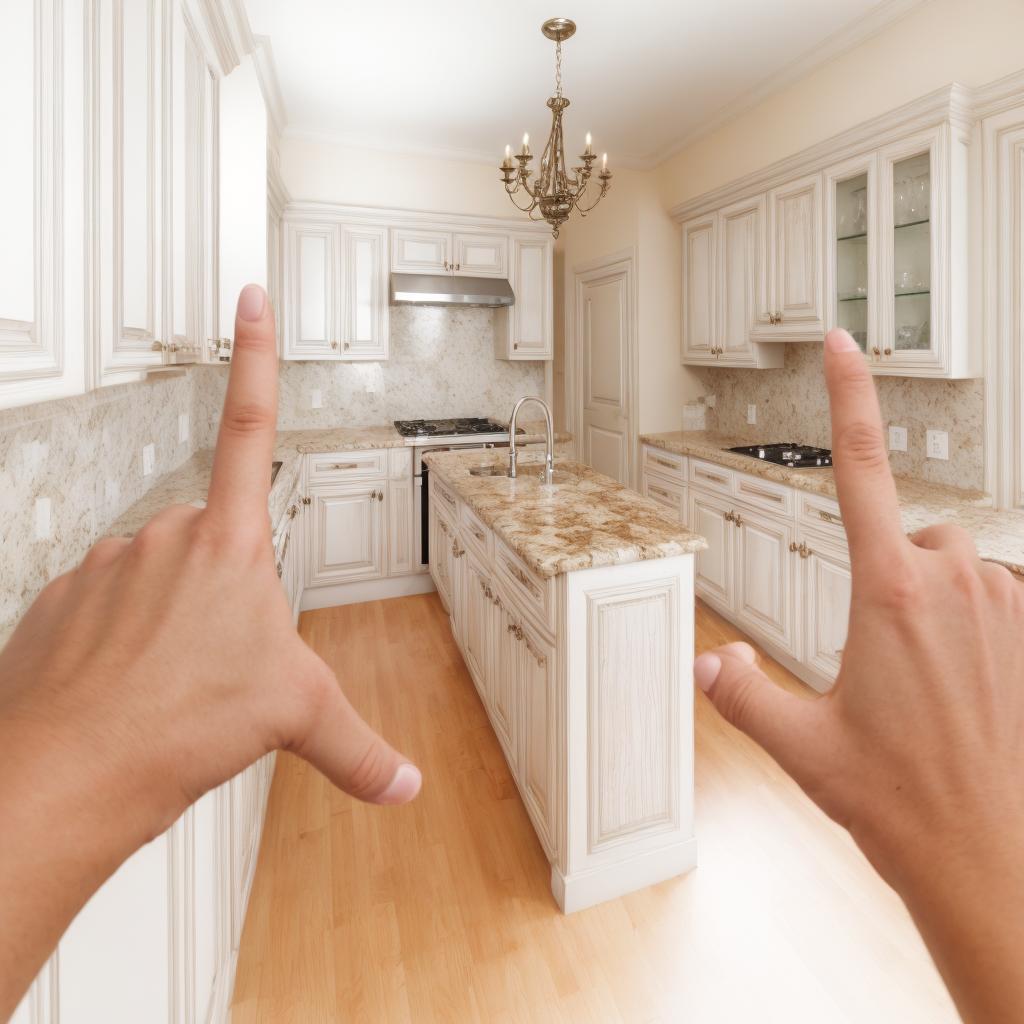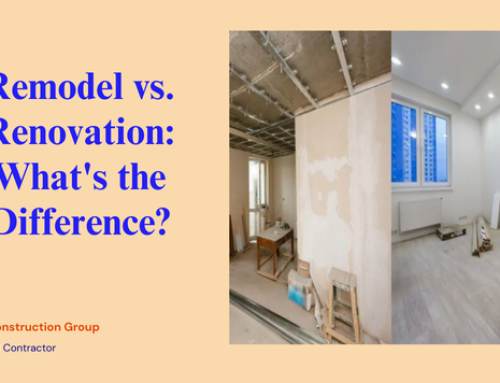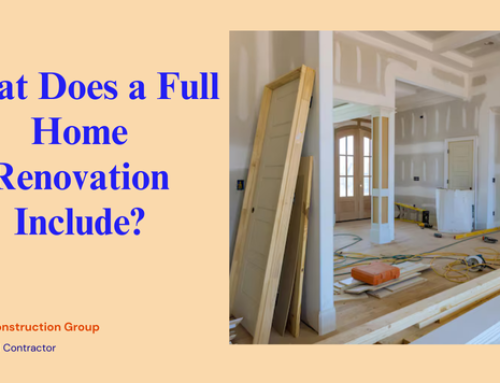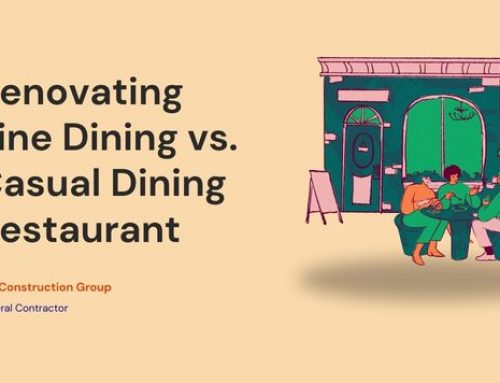Constructing your dream home can often feel like standing at a crossroads, with two distinct paths:
- the allure of constructing a brand-new house,
- or the charm of breathing new life into an old structure, rich with history and memories.
Both choices, whether renovating your current home or buying a new one, come with their own set of challenges and benefits that are important to consider.
Because the decision you make among these two options will have a big impact on how much money you’ll spend, how long the project will take, what the final result will look like, what you want to achieve, and the condition of the building or property.
At LUX Construction Group, we aim to provide you with a clear understanding of whether it’s better to renovate your existing house or start fresh with a new one. So, let’s get started!
Contents
- Renovation vs Building a New Home
- New Home Building
- Home Renovation
- New Construction OR Renovation: Which is Better?
- Budgeting: Weighing Costs
- Time Investment: Both Options Demand Patience
- The Ins & Outs: Decoding Construction and Renovation Processes
- Design Choices: Building a New or Renovating Vintage Homes
- Maximize Resale Value: Strategic Investment
- Rules & Regulations: Permits and Paperwork Challenge
- Long-Term Planning: Future-Proofing Your Home
- How to Decide Either Renovate Or Build New House
- Get The Home of Your Dreams With LUX Construction!
Renovation vs Building a New Home
New Home Building
Building your own custom home is a big project. It means working closely with architects, builders, and maybe even interior designers. You get to decide everything about your new home, from the style of the building to where it sits on your property. This lets you do whatever you want, but it also means you have a lot of choices to make.
Home Renovation
Renovating is about changing your existing home. This could be a big job, like completely redoing the inside, or just updating one room. While you won’t have as much freedom as building a new house, you still get to make it look the way you want.
New Construction OR Renovation: Which is Better?
Deciding to build a new home is like having a clean sheet of paper. You get to plan everything – how the house is laid out, how many rooms you want, and all the special design touches. It’s your opportunity to include all the latest and greatest features from the get-go.
On the other hand, if you choose to renovate, you get to keep the unique personality of an older house. It’s all about mixing the old-world charm with the comforts and conveniences we love today.
Let’s take a look at each factor closely:
Budgeting: Weighing Costs
Building a new home is a chance to design and construct a space that’s completely tailored to your preferences, right from the ground up. The costs can be quite substantial but are generally clear and predictable. You’ll have expenses for materials, paying the workers, getting the necessary permits, and so on. These costs add up, but the good thing is, you usually know upfront what you’re paying for.
On the other hand, if you choose to renovate an existing house, it’s a bit like going on a treasure hunt, but not always in a good way. Behind every wall, there could be unexpected surprises. For example, you might start breaking down a wall and find out that the electrical wiring or plumbing is old and doesn’t meet today’s safety standards.
These kinds of discoveries can lead to budget overruns, as you’ll need to spend extra to bring everything up to current codes. Renovating can be full of these unforeseen challenges, which can make planning your budget a lot trickier compared to building new.
Time Investment: Both Options Demand Patience
Time is just as crucial as money when it comes to creating your dream home. Be prepared because it might take a year or even longer before it’s ready for you to live in.
Whereas renovating an existing house might seem faster, but it’s not always the case. Renovations can be full of surprises, and sometimes these surprises can lead to delays. It’s important to consider how much time you have for this project. Ask yourself how soon you need to move in and how much delay you can handle.
Remember, both building and renovating require patience and a bit of flexibility with your time.
The Ins & Outs: Decoding Construction and Renovation Processes
Turning a set of blueprints into an actual building is a complicated process, whether you’re starting from scratch or renovating an existing space. If you’re building a new house, you’ll find yourself working with a team of professionals like architects, builders, and various contractors. There is a sequence of events that need to take place in order: permits, foundation work, framing, roofing, and everything else.
Renovating a house can be just as complex, depending on how much you want to change. It could be a simple update, like painting and new fixtures, or it could be a major remodel that changes the structure of the house.
With renovations, you’ll be making a lot of design choices, and figuring out the construction timeline, and you might even have to live in your house while it’s a construction site. This can mean dealing with dust, noise, and sometimes not having access to parts of your home while the work is being done.
Design Choices: Building a New or Renovating Vintage Homes
Building a new home is like starting from scratch. It’s an exciting opportunity where you get to make all the decisions – from how the house is laid out to how many rooms you want, and even the little design details that make a home feel special. It’s your chance to create something that perfectly fits your needs and style. Plus, you can include all the latest energy-saving and modern features right from the start.
Conversely, in home renovations, you’re embracing a different kind of project. Renovation is all about keeping the unique character and history that comes with an older house while updating it to meet your needs. It’s a balancing act – you’re working to maintain the original charm that drew you to the house in the first place, like classic woodwork or vintage tiles, while also bringing in modern comforts and conveniences. Renovating can be a way to honor the past while making a home that’s comfortable for today’s living.
Maximize Resale Value: Strategic Investment
If you’re thinking about how much your home might be worth when you decide to sell it, whether that’s soon or many years from now, it’s important to consider how both building a new house and renovating an existing one can have their benefits. New house construction gives you the chance to include modern features that a lot of buyers are looking for these days.
For example, you could have a smart home system, use energy-saving designs, and create spacious, open living areas. These kinds of features can make your home really appealing to future buyers.
However, renovating an older home can also boost its value a lot, especially if you focus on key areas like the kitchen and bathrooms. These are places in a house that really catch a buyer’s eye. A well-done renovation can transform an older property, making it more attractive and functional, which can be a big selling point.
So, it’s not just about what you want in a home right now. It’s also about thinking ahead to how these choices – whether you build new or renovate – will affect your home’s value and its appeal to future buyers when you’re ready to move on.
Rules & Regulations: Permits and Paperwork Challenge
When you’re planning to build a new house in Los Angeles, CA, you’ll need to get quite a few approvals. This is to make sure that every part of your construction meets the local building codes, which are there to ensure safety and quality. These codes cover everything from the building’s structure to electrical systems, plumbing, and more. It’s a detailed process, but it’s crucial for making sure your new home is safe and compliant.
While renovating your older home in Los Angeles, you might face even more rules and regulations. Los Angeles has specific guidelines for historic homes to preserve their unique character and historical significance. This means you might need extra permissions or have to follow certain standards if you want to make changes to the building’s structure or appearance.
Understanding all these local laws and building requirements can be quite complex. That’s why it’s really important to hire a LUX Construction contractor. Our architects, contractors, or consultants specialize in Los Angeles building codes and historic preservation rules. We can help guide you through the process, making sure your project stays legal and avoiding any expensive mistakes or delays.
Long-Term Planning: Future-Proofing Your Home
While deciding between a new house construction or an old home renovation, it’s important to think about what each choice means for you in the long run. If you go for a new build, you’re likely to enjoy a period where there’s less need for fixing things up. This is because new homes are made with the latest materials and technology, which are often more durable and efficient. So, in the beginning, you might not have to worry about repairs or updates as much.
But, older homes have their own advantages. Many of them were constructed with materials that were really meant to last. We’re talking about solid woods, thick plasters, and other high-quality materials that you don’t always find in newer constructions. With the right care and attention, these older homes can remain sturdy and beautiful for a very long time. They have already stood the test of time and, with proper maintenance, can continue to be a reliable and charming place to live.
How to Decide Either Renovate Or Build New House
Deciding between renovating your current home or buying a new one is a big choice. Here are some signs that it might be time for a change:
- If our family is expanding and you need more space or extra rooms.
- If your current home feels like it’s stuck in a time warp, and the design is no longer inspiring or exciting, a change might be in order.
- If your house has become a regular visitor to the repair shop, and the expenses and headaches are piling up, it might be worth considering a change.
- If your home is showing signs of serious wear and tear, or it needs significant structural repairs, it could be a signal that its life cycle is coming to an end.
- If your job or office location has changed, and moving is a necessity to cut down on commute time, it could be a practical reason to consider a new home.
- If the house you bought in the past was a bit on the smaller side due to budget constraints, but now your income allows for a more significant investment, it might be time to explore a larger and more comfortable space.
Get The Home of Your Dreams With LUX Construction!
To sum it up, choosing between building a new structure and renovating an existing one depends on the scale of your project.
Opting for new construction offers you greater flexibility and control – you can customize it precisely to match your needs and aspirations. However, keep in mind that building from scratch might be pricier and take more time compared to renovating a relatively new building.
On the flip side, renovating ties you to the existing structure to some extent, limiting your options compared to the freedom new construction provides. Yet, if you’re simply looking to give your current space a facelift, renovation is likely the more budget-friendly choice.
The decision between renovating and new construction is a pivotal one that sets the tone for the entire project. It influences your budget, timeline, and practically every other decision you make.
At LUX Construction, with over 35 years of industry experience, we’ve assisted countless clients in making this crucial choice. We’re here to discuss your project, understand your goals, and help you find the path that best suits your needs. We’d love the opportunity to talk about your project and help you decide which path is right for you.







